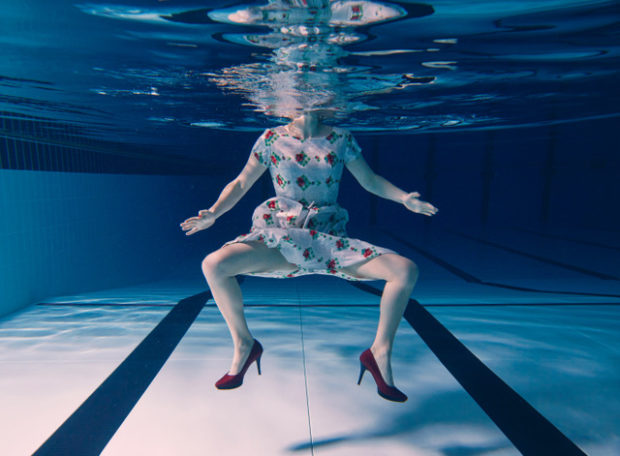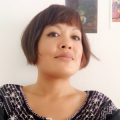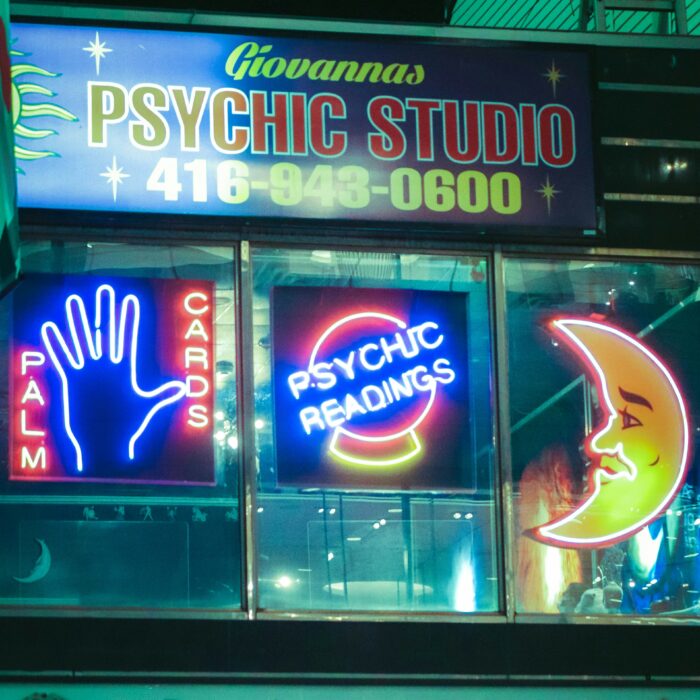You have no items in your cart. Want to get some nice things?
Go shopping
What’s it about? The question I’ve been dreading of late. I’ve written a solo comedy storytelling show for the theatre, Good Girl. It’s my first, and I can’t wait to share it, but when it comes to summing it up neatly in a punchy “elevator pitch” I clam up. “Oh, it’s about growing up in the 90s,” I say, hoping that will satiate the mildly interested. “It’s about the faux feminism of Girl Power and sex.” “It’s about girls and what happens to them as they grow up under the male gaze.” And I wouldn’t be lying. But it leaves me deeply troubled, as if somehow I’ve short-changed myself, my play, and its protagonist. How many times have I tried to pin down this writhing, unknowable story? And yet it remains uncaptured, just out of reach. As soon as I have it in the palm of my hand and try to label it – well you are about this – it shape-shifts and wriggles off again. So why is this happening? And is it normal?
As part of working in association with London’s Old Red Lion theatre, I did one of their open readings where work in progress can find an audience. The feedback was useful, encouraging. But two things stood out to me and those two things just didn’t sit right. One, that I needed to resolve my character’s journey more neatly, and two, how autobiographical is this story? “We need to know, and if it’s not then we also need to know. Can you frame it with some device to make it clear where the lines of fiction and non-fiction are?”
As a new writer, every scrap of feedback was precious to me no matter whether I felt intuitively I should leave it to one side. Dutifully trying to please everyone (I knew I wasn’t supposed to do this), I was at risk of ending up with a Frankenstein’s monster. A patchwork quilt of a show which felt disjointed. To make sense of the monster I’d slaved over and fallen in and out of love with I needed to go back to the beginning. Who is this show about really? And why am I writing it?
When it comes to the issue of autobiographical content, I’ve been desperate to try to get away from the received idea that women often write about experience. In Why Be Happy When You Could Be Normal, Jeanette Winterson reflects, “why could there not be experience AND experiment . . . the observed AND the imagined?” And I agree with her. I don’t want to be self-limiting to personal experience. Why should it be one thing or the other? My heroine GG (Good Girl) is, one way or another, an everywoman. Her experiences of growing up, the intense joys, pleasures and betrayal within friendships are universal. I’m learning to reject the idea that somehow my story must be truthful in the sense of autobiographical. Perhaps it is. Perhaps not. Do the audience have a right to know? Must I frame it, as some close friends and family would like me to, as fiction? The subject matter explores intimate details about orgasm, disassociation, and an encounter with sex work. Do I have to ‘protect’ myself? “Don’t worry, it’s not about me.” Is it distracting if you don’t know?
I’ve been to storytelling shows this past year whose premise is confession or testimony whilst in fact it’s fiction. I’ve heard audience members become irate, feel betrayed, even, when they discover this play they’ve been to see is exactly that: make believe.
I don’t want my audiences left feeling betrayed or manipulated. But writing a personal show is accompanied by a huge sense of shame. Shame that the subject matter is intimate, emotional. Shame that it might leave me too vulnerable, even if it is only inspired by experience. In fact, I’ve only just come to the point of being able to say so. Somehow it feels lightweight, or unadventurous, to tell an internal story. The other storytelling shows I’ve seen have been about external adventures, missions for friends, searching for victory; I was worried mine wouldn’t fit in.
Expressing these concerns, I was pointed more than once in the direction of Joseph Campbell’s The Hero’s Journey. Charting GG’s story alongside the 12 steps of the hero’s narrative was deeply discouraging. They just didn’t align. Why didn’t my hero go on a quest to achieve great deeds, to return to her community victorious? Had I written a load of old codswallop? I was on the phone to my mum, also a writer (her name is Jane Austin – I’m not kidding) who had been preparing for a talk on the hero’s journey and in her research stumbled across an alternative narrative. An alternative? I thought the Hero’s Journey was the accepted form on which myth, drama, storytelling, and religious ritual had been based since, well, since we’ve been telling them. Oh no, there’s another journey you know, she said, and outlined Maureen Murdock’s response to Campbell’s model.
I listened as my mother reeled off the 10-step Heroine’s Journey and my jaw dropped. Each beat matched GG’s story. Separation from feminine values, check. Seeking recognition and success in a patriarchal culture, check. Experiencing spiritual death, check. The list went on. I felt an incredible sense of relief. I’d been trying to fit a square peg into a round hole. My story fits an accepted form. Great. I mean, thank God. But how was it that I intuitively came to write in this form?
This story is written for performance. When I first read the initial draft aloud to my director, it was probably the worst thing to have come out of my mouth since a particularly bad script of a sitcom set in a morgue I auditioned for. It was stilted. More of an essay than a show, and I pitied the poor sod who’d have to perform it. Then I remembered that was me. I knew I had to go back to the oral tradition of storytelling. Thus began my weekly, hour-long sessions of improvising a show, recorded, and in front of my director, who also happens to be my husband. So, no leniencies there. If I was lucky, around five minutes of this excruciating hour would make the cut. Then back to the drawing board. But the results were worth it. My story came alive.
I wonder if the reason Good Girl follows The Heroine’s Journey so closely is because the story was developed organically. I told it in a way that felt most natural for me, focusing on the emotional journey of GG, and how she learns to live with her evolving inner life. For me, this raises questions about whether the Heroine’s Journey is carried innately in women’s bodies. It differs to the Hero’s Journey in that the protagonist goes through an internal awakening as opposed to a quest, ending in victorious return. Do our experiences as women living in a patriarchy mean this narrative comes naturally to us? I’d argue that it’s not an innately female story but “other”. The Heroine’s Journey is for any protagonist that is seeking success and acceptance in a society that doesn’t favour them. It just happens to be that I’ve got the triple whammy. A Heroine’s story with a female heroine, written by a woman. Stick that in your ovaries.
So back to my elevator pitch. The truth is the Heroine Journey isn’t as easily captured in a couple of lines the way that the Hero’s Journey might be. This might be because these tales aren’t frequently dramatised, or visible. There is nothing snappy about the internal landscape or self-discovery. It’s a difficult pitch. But why doesn’t the “feminine narrative” grapple with tangible worldly things like money and trophies and dead dragons? Why does it have to be about feelings? I became a little frustrated that I was putting myself in an “unhelpful feelings” box. But internal doesn’t mean wishy-washy or vague. The internal is tangible, it affects the world in material ways. It drives us to make choices. Economic, moral, physical, political. We must start somewhere, and that somewhere is within. Plus, the ways it makes us behave can be bloody funny – the internal has a sense of humour.
In terms of tying up loose ends, most internal journeys take years to complete. No neat resolution for me. Which is why I currently finish the show with a call for change. To embrace the twisting, moving internal landscape and discuss it, live it, not to cut it off or shove it into uncomfortable ill-fitting boxes. GG learns to find a spiritual connection with herself, but it’s an incomplete, ongoing journey that doesn’t finish at the end of the show.
Now if that sounds a bit airy-fairy for you, join the club. I felt the same until the open reading. A surprising number of people came up to me and said, “God, yeah I have that, that’s my story.” It left me thinking that yes, this story is universal. That moment when you read a book and think, oh thank God someone else feels that way too? Well that’s my favourite thing, and if Good Girl can do that then I’m on to a good thing.
I’ve gone on my own Heroine’s Journey in the process of writing Good Girl. I have a pitch that sits well with me at last. Good Girl is a funny story about the trauma of growing up in a world where women can be seen to cry but not be angry, vulnerable but not powerful. If you think the messy, unmanageable, emotional woman is dangerous, then you haven’t seen what she is capable of when she cuts her feelings out. Time to look within and share what’s there.
Good Girl previews at the Old Red Lion in July, and has an Edinburgh run in August.
London previews / Old Red Lion / 26th – 29th July
Edinburgh run / Just the Tonic Mash House / 3rd – 27th August (not 14th)

About Naomi Sheldon
Naomi is an actor and writer. Her new new comedy solo show Good Girl will be previewing in London before a full run at the Edinburgh Fringe festival. London previews / Old Red Lion / 7.30pm / 26th - 29th July Edinburgh run / Just the Tonic Mash House / 1pm / 3rd - 27th August (not 14th)



